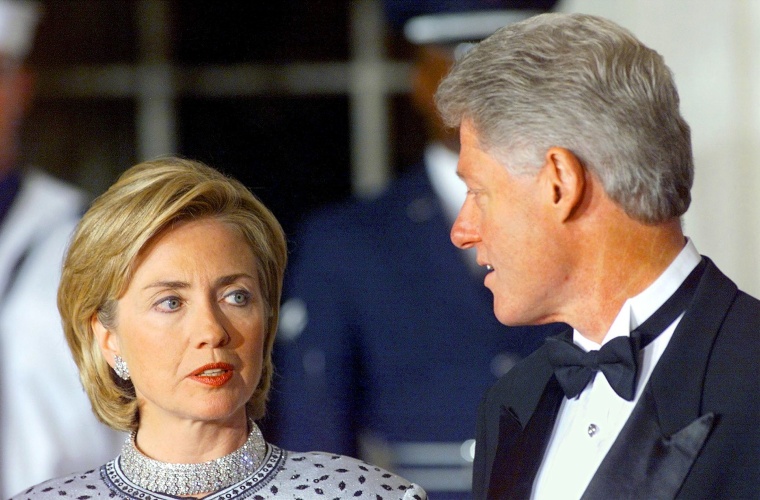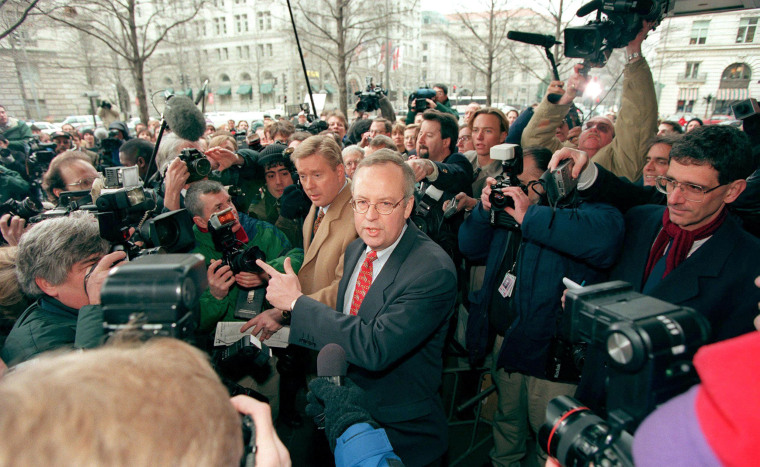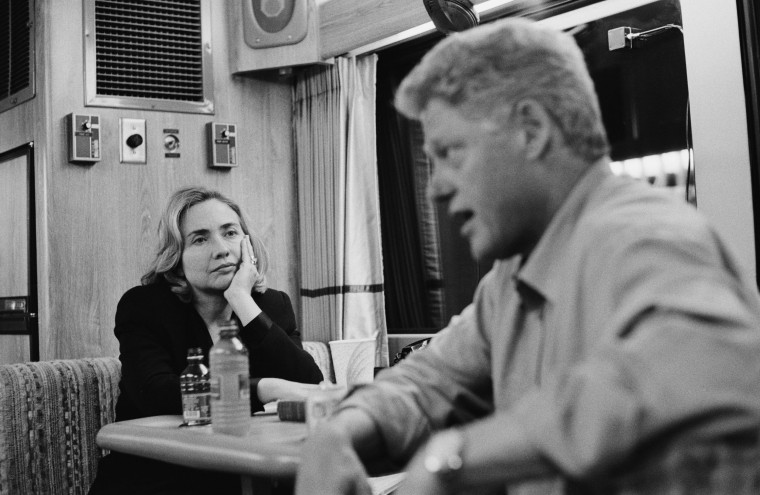WASHINGTON — Life was hell in the White House.
The aides and advisers who endured the last major independent investigation at 1600 Pennsylvania Avenue say President Donald Trump and his team cannot be prepared for how miserable their lives are about to become.
Ken Starr’s investigation into Bill Clinton wrought havoc on the personal and professional lives of the White House staff, brought down a sitting governor, and ultimately led to the impeachment of a president for only the second time in American history.
And it did all that despite, after almost 10 years and $70 million, ultimately finding insufficient evidence to bring charges against the Clintons or any White House officials. More indictments and convictions were doled out to Ronald Reagan and George W. Bush aides.
But the Clinton probe was still brutal in the toll that it took.
“There were definitely nights when I put my faith in alcohol,” said former White House Staff Secretary Sean Patrick Maloney, who is now a Democratic congressman from New York. “It’s not fun.”
Maloney said he’ll never forget standing in his office in the White House when the Senate Sergeant of Arms delivered the articles of impeachment to Clinton.
Former FBI Director Robert Mueller's probe into Russian meddling in last year's election and possible ties of the Trump campaign to Moscow is starting at the beginning of Trump's presidency when he has few accomplishments or good will to fall back on, and when the White House is already riven with internal divisions and leaks.
Intensity ratcheted up this week with NBC News' exclusive report that the FBI was scrutinizing Trump adviser and son-in-law Jared Kushner.
House and Senate Committees also are probing the Trump campaign's alleged contacts with Russians.
"When you think about staff, this is not what you signed up for," Maloney said.
Mueller is seen as a fairer investigator than Starr, and the sweeping law that gave Starr near-total independence and unlimited resources has since expired. But any far-reaching independent investigation can be, at the least, a painful distraction for those around to the president.
Prior probes, like those into Reagan and Bush, have ventured far afield from where they started as investigators try to gain leverage over potential witnesses or uncover wrongdoing unrelated to the original matter. That could potentially include Trump aides' business dealings, campaign finance issues and more.
Joe Conason, a liberal journalist who wrote a well-sourced book about the Clinton White House scandals, said the Russia probe will be a “full employment act for the D.C. defense bar.”

Hillary and Bill Clinton were in fact “dead broke” when they left office after racking up $10 million dollars in legal debt. But so were many of their staffers, who had to hire lawyers themselves (the Clintons later raised money to help defray aides' bills).
Clinton's personal secretary, Betty Currie, recalled feeling like she was putting her colleagues in jeopardy when she spoke with prosecutors.
“They kept asking me questions about people, and at one point I told them, ‘I cannot mention another name to you, because as soon as I mention a name, you subpoena these young kids who can’t afford any lawyers,'" she said.
Former Clinton adviser Sidney Blumenthal joked at a staff meeting once that his recent deposition had been “a very expensive form of therapy,” he wrote in his book.
On his first day on the job as Clinton’s new legislative liaison, Lawrence Stein was kicked out of a meeting and told, “You might want to find another room because you don’t want to hire a lawyer.”
White House Communications Director George Stephanopoulos was swarmed by reporters and TV cameras as climbed into a taxi on his way to a meeting with the grand jury.
“By the end of my White House tenure, receiving a subpoena was a routine matter, another item in the in-box,” Stephanopoulos, now at ABC News, wrote in his book, “All too Human.”
Some staffers also faced damage to their reputations as salacious stories leaked to the press about their personal lives, while others were found to have committed unrelated crimes. One, the chief of staff to the Secretary of Agriculture, was sentenced to 27 months in prison lying to investigators about $22,000 in outside income. Housing Secretary Henry Cisneros plead guilty to making false statements and paid a $10,000 fine.

As Starr’s investigation gained momentum, the White House took pains to limit their staffers’ legal exposure.
Aides were told not to take notes in meetings or even keep personal journals, since all of it could be subpoenaed. And they had to be careful about what they said to each other, even in private, since they could be compelled to testify against each other.
And the White House set up a dedicated team to focus on the investigations so the rest of the staff could pursue the president's policy agenda.
“The president made it clear that there would be small group that would deal with this so everyone else could do their job for the American people,” said Ann Lewis, who was part the the scandal squad.
Trump's White House seems to be taking a page from Clinton on that front, creating a "war room" that will be led by Chief of Staff Reince Priebus, senior adviser Steve Bannon, and son-in-law Jared Kushner, officials told NBC News.
But up to know, said Lewis, Trump's team has been too loose-lipped, disorganized and undisciplined.
“It’s hard to see how they could do it worse,” said Lewis last week before disclosure of the war room. “Is it contained? No. Is there a system where your allies feel like they’re getting a steady stream of information? No. Is there a central team of credible people handling this? No."
RELATED: Trump asked intel officials to push back on Russia probe
Bernard Nussbaum, Clinton’s first White House Counsel, who warned the president against appointing an independent counsel, said the damage can be devastating.
“They will chase your family. They’ll chase you...They’ll chase your friends,” Nussbaum told the Miller Center at the University of Virginia for an oral history project in which he was discussing advice he gave Clinton. “This will last as long as you’re president and beyond. They’ll be investigating things years from now that we haven’t even dreamed about today."
Meanwhile, paranoia can pervade the cramped quarters of the West Wing as staffers worry if others will undermine them legally in the privacy of the grand jury chambers, by accident or not.
“It just creates havoc inside an already high-pressured organization that needs to have some sort of esprit de corps in order to function properly,” said Russell Riley, who directs the Presidential Oral History Program at the Miller Center, which has collected interviews with former officials since the Carter Administration.
“There’s this great sense of anxiety and suspicion about where the next shoe may drop,” Riley added.
Maloney, who oversaw about 100 staffers at the executive office, said their faith in Clinton's ability to be a good president — warts and all — was what kept everyone going. He wonders if Trump aides feel that way.
"When you think about staff, this is not what you signed up for," Maloney said. "Particularly when you are facing legal bills or reputational damage, and you have to answer questions from family and friends who ask you what you’re doing and why. It can cause real soul searching. And in those moments believing in the person you work for is critical."

